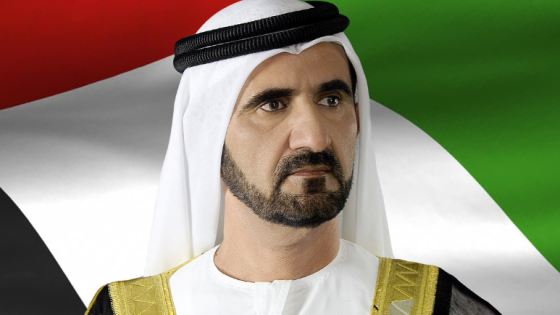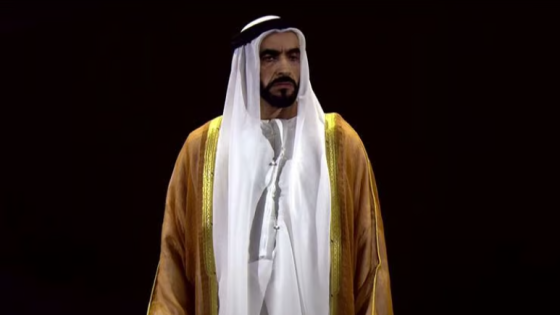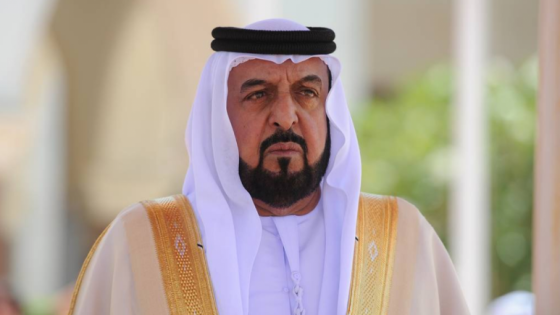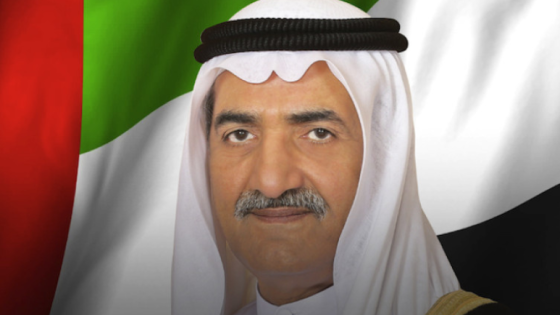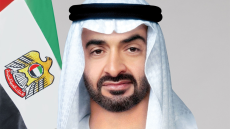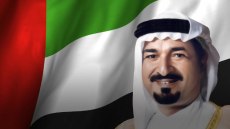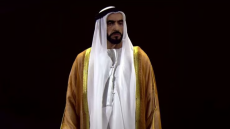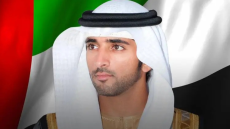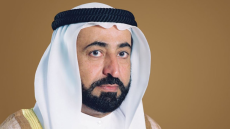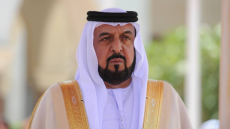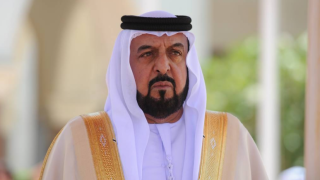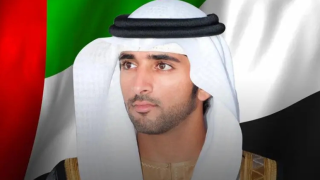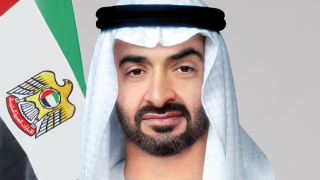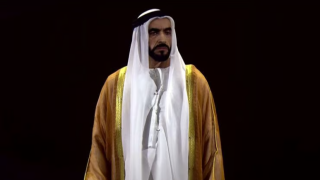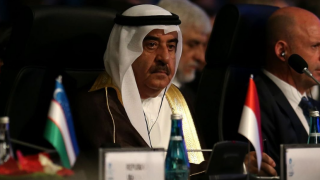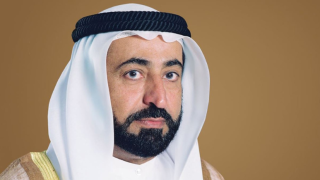Mohammed bin Rashid Al Maktoum is a beacon of visionary leadership in the United Arab Emirates. As the Prime Minister and current ruler of Dubai, he has spearheaded remarkable advancements that have transformed the city into a global powerhouse. From initiating grand projects like Sheikh Mohammed bin Rashid Al Maktoum City to nurturing future generations represented by figures such as Hamdan bin Mohammed, his legacy includes fostering innovation and cultural growth throughout the UAE.
Mohammed bin Rashid Al Maktoum: Early Life and Education
Sheikh Mohammed bin Rashid Al Maktoum, born on July 15, 1949, in Dubai, United Arab Emirates, has served as the vice president (2006–present) and prime minister (2006–present) of the UAE, as well as the emir of Dubai (2006–present). He is the third son of Sheikh Rashid bin Saeed Al Maktoum, who ruled Dubai and led the Maktoum dynasty from 1958 until 1990. After completing his secondary education in Dubai, Mohammed pursued English studies in Cambridge, England, and later received military training at a cadet school in Aldershot.
Read more: Zayed bin Sultan Al Nahyan: Visionary Leadership and Legacy of Sheikh Zayed
Political Ascendancy and Early Contributions
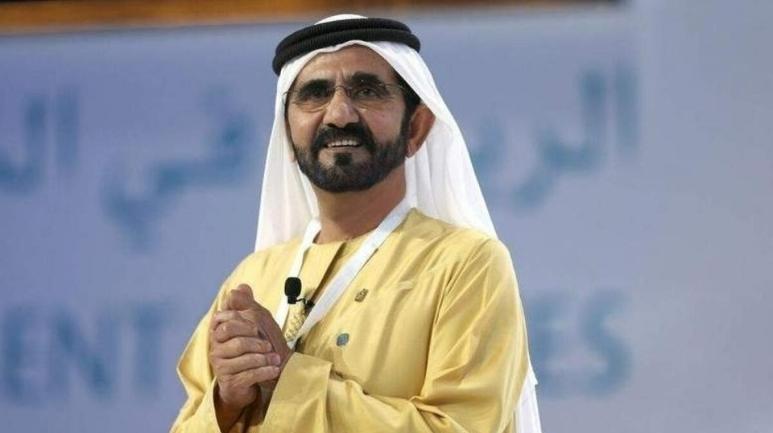
In 1968, Mohammed bin Rashid Al Maktoum began his journey towards leadership and development in the UAE.
- 1968 Summit Participation: Joined father at Trucial States Council summit for UAE federation formation.
- Minister of Defense: Appointed in 1971, established the Union Defense Force.
- Administration of Dubai: Took over governance with his brothers during his father’s illness in the 1980s.
- Jebel Ali Free-Trade Zone: Developed a major industrial hub around Jebel Ali port.
Read more: Economic Importance of UAE Mineral Deposits
Visionary Projects and Leadership
After his brother Maktoum ascended to the position of emir in 1990, Mohammed continued to lead some of Dubai’s most ambitious initiatives aimed at attracting international businesses and luxury tourism. His landmark projects included the creation of the artificial Palm Jumeirah islands and the Burj al-ʿArab Hotel.
By the time he became the emir of Dubai in 2006, the emirate’s financial strength enabled it to operate independently within the federation, even if it meant conflicting with the federal policies of the Nahyan dynasty in Abu Dhabi.
Read more: Insights from Geological Surveys in the UAE
Economic Challenges and Recovery Efforts
However, shortly after Mohammed took office, Dubai faced a significant challenge when the global financial crisis of 2007–08 severely impacted its economy. In 2009, the emirate declared its inability to meet immediate financial obligations, including servicing over $100 billion in debt. Two bailouts of $10 billion each from Abu Dhabi helped stabilize the situation, but the slow recovery made Dubai reliant on Abu Dhabi’s oil revenues.
Read more: Managing Natural Disasters in the UAE
Legacy and Future Aspirations
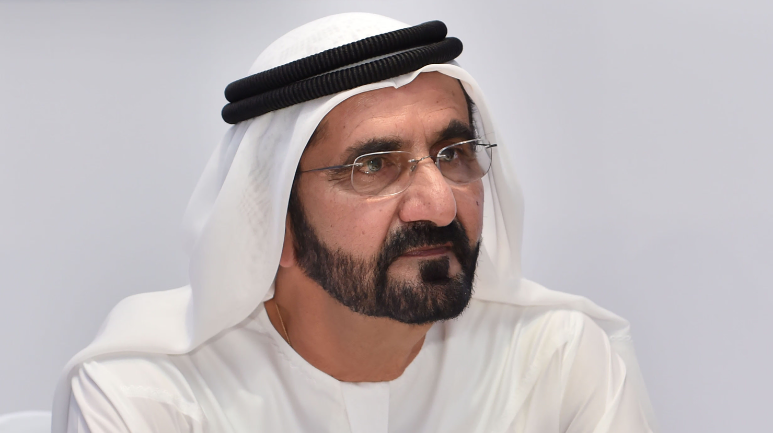
In 2010, during the inauguration of the world’s tallest building in Dubai, he announced that the structure’s name would change from Burj Dubai to Burj Khalifa, in honor of Sheikh Khalifa bin Zayed Al Nahyan, the ruler of Abu Dhabi.
Over the next decade, Mohammed focused on revitalizing Dubai, although challenges such as high real estate prices, regional instability, and declining oil prices continued to hinder efforts to reduce the emirate’s substantial debt.
Read more: Defining Natural Boundaries in the UAE
Ascension to Leadership
On January 4, 2006, His Highness Sheikh Mohammed bin Rashid Al Maktoum became the Ruler of Dubai following the passing of his brother, Sheikh Maktoum bin Rashid Al Maktoum. The next day, Sheikh Mohammed was elected Vice President of the UAE by the members of the Federal Supreme Council.
His Highness Sheikh Khalifa bin Zayed Al Nahyan, the President of the UAE, nominated Sheikh Mohammed to also serve as Prime Minister and to establish a new government, a nomination that was subsequently approved by the Supreme Council.
Read more: Sand Composition Analysis in the UAE
Oath of Office and Revolutionary Initiatives
On February 11, 2006, Sheikh Mohammed bin Rashid and the new Cabinet members took their oaths of office at Al Bateen Palace in Abu Dhabi before His Highness Sheikh Khalifa bin Zayed Al Nahyan. Since assuming the roles of Vice President, Prime Minister of the UAE, and Ruler of Dubai, Sheikh Mohammed has initiated numerous groundbreaking projects throughout the UAE.
Read more: Fossil Discoveries and Research in the UAE
Vision for Sustainable Development
The year 2007 marked significant local and regional accomplishments for Sheikh Mohammed. On April 17, 2007, he launched the UAE Government Strategy, which aims to achieve sustainable development, optimize federal resource utilization, and ensure accountability and transparency among federal entities.
Read more: Renewable Energy Projects Across the UAE
Setting the Course for the Future
In 2010, the government introduced the UAE Vision 2021, a strategic roadmap leading to 2021, aiming to position the UAE among the world’s leading nations by the Golden Jubilee of the Union. In 2014, Sheikh Mohammed instigated a seven-year National Agenda to steer efforts toward achieving Vision 2021.
Recognizing the importance of preparing future generations with the necessary skills and knowledge to navigate rapid changes, he also introduced the UAE Centennial 2071, a long-term comprehensive plan extending over five decades after 2021, outlining a concrete framework for sustained governmental work to enhance the UAE’s global reputation and soft power.
Read more: Earthquake Preparedness in the UAE
Cabinet Reshuffles and Government Flexibility
Under Sheikh Mohammed bin Rashid Al Maktoum’s leadership, the UAE Cabinet experienced 14 reshuffles to adapt to changing circumstances and the latest developments, showcasing the government’s flexibility in addressing national priorities and future trends.
Read more: Water Conservation Initiatives in the UAE
Accelerating Federal Government Achievements
In the latter half of 2021, Sheikh Mohammed unveiled a new strategy for federal government operations aimed at expediting achievements and setting clear priorities. He also instructed all government institutions to adopt and implement the UAE’s “10 Principles of the 50,” which had been endorsed by the President of the UAE, while formulating strategies and plans.
| Achievement | Description | Impact | Year |
| New Strategy for Operations | Unveiled a strategic framework for federal government operations | Enhanced efficiency and faster delivery of services | 2021 |
| Implementation of the “10 Principles of the 50” | All government institutions are instructed to integrate these principles into their operations | Aligns government efforts with national priorities | 2021 |
| National Digital Transformation | Launched initiatives to digitize government services | Improved accessibility and user experience for citizens | 2020 |
| Emirati Talent Development | Programs designed to nurture and attract local talent within government roles | Strengthened human capital in the public sector | 2019 |
| Sustainability Initiatives | Implemented green policies and practices in government operations | Promoted environmental awareness and sustainability | 2020 |
| Enhanced Public Service Delivery | Streamlining procedures and reducing bureaucratic hurdles | Increased citizen satisfaction and trust in government | 2021 |
Read more: Land Utilization Patterns in the UAE
Origins of the Al Maktoum Family: Inspiring Biography
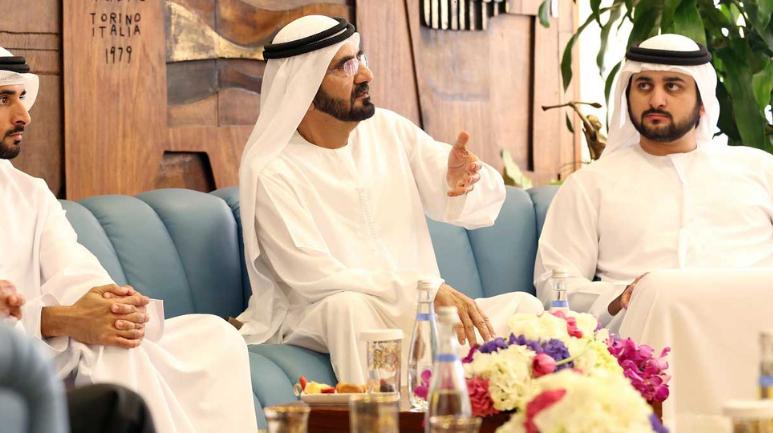
The Al Maktoum family traces its lineage to the Al Falasah tribe, which is part of the Bani Yas confederation that includes several Arab tribes, and is highly esteemed in the United Arab Emirates and the broader Arabian Gulf region.
Establishing Rules in Dubai
In 1833, the Al Maktoum family began their governance of Dubai, starting with Sheikh Maktoum bin Buti bin Suhail. His leadership came during challenging economic and political times, which he navigated successfully through his wisdom and resilience. Upon his death in 1852, his brother, Sheikh Saeed bin Buti, succeeded him and continued to manage Dubai’s affairs, focusing on strengthening alliances to foster stability.
Leadership Transitions and Alliances
After Sheikh Saeed bin Buti passed away in 1859, Sheikh Hasher bin Maktoum took over, maintaining the treaties established by his predecessor until he died in 1886. Following discussions among the tribe’s leaders, Sheikh Rashid bin Maktoum was appointed ruler, and his tenure was characterized by the formation of alliances with various tribes.
After Sheikh Rashid died in 1894, Sheikh Maktoum bin Hasher ascended to power, promoting economic openness and positioning Dubai as a key player in maritime trade. He ruled until 1906, after which his cousin Sheikh Buti bin Suhail took over, although his rule was short-lived due to his advanced age.
Modernization and Population Growth
Sheikh Saeed bin Maktoum bin Hasher began his rule in 1912, a period marked by a doubling of Dubai’s population and the emergence of the city as a modern urban center. He was widely admired and respected, significantly enhancing Dubai’s reputation. In 1958, Sheikh Rashid bin Saeed Al Maktoum assumed leadership, having closely observed his father’s roles in various functions and councils, engaging with the public to understand their needs and concerns.
Read more: UAE’s Youth Empowerment Programs for Future Leaders
Foundations of Modern Dubai
Sheikh Rashid was dedicated to overseeing projects personally and interacting with the community, which earned him their affection and respect. He is regarded as the architect of the modern Dubai we know today. During his reign, numerous strategic projects were initiated, propelling the emirate’s economic and social development.
Key projects included the construction of Rashid and Jebel Ali ports, Dubai International Airport, and a modern road network that featured the Shindagha Tunnel, Al Maktoum Bridge, and Al Garhoud Bridge, connecting both sides of the creek. This era also saw the establishment of several international companies, including Emirates Airlines.
Transition of Power and Continued Leadership
The passing of Sheikh Rashid bin Saeed Al Maktoum had a profound impact both locally and internationally. His son, Sheikh Maktoum bin Rashid Al Maktoum, known for his wise leadership and deep affection for his people, took over the rule of Dubai from 1990 to 2006, during which he appointed Sheikh Mohammed bin Rashid Al Maktoum as Crown Prince.
Sheikh Mohammed’s Leadership
Following the death of Sheikh Maktoum bin Rashid Al Maktoum in 2006, Sheikh Mohammed bin Rashid became the ruler of Dubai. On January 5 of the same year, he was elected Vice President and the Prime Minister UAE Cabinet by members of the Federal Supreme Council. In 2008, Sheikh Mohammed issued a decree appointing Sheikh Hamdan bin Mohammed bin Rashid Al Maktoum as Crown Prince and Sheikh Maktoum bin Mohammed bin Rashid Al Maktoum as Deputy Ruler of Dubai.
Read more: Groundwater Sustainability in the UAE
Mohammed bin Rashid Congratulates the Great Arab Minds Award Winners 2024
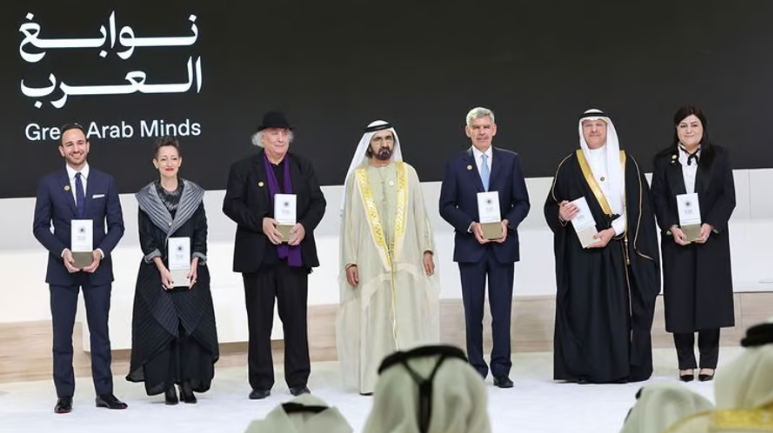
Sheikh Mohammed bin Rashid Al Maktoum recognized the remarkable achievements of the award winners, highlighting their essential roles in advancing knowledge, innovation, and excellence across the Arab world.
The Great Arab Minds Award in Economics
Sheikh Mohammed bin Rashid Al Maktoum congratulated Professor Yacine Aït-Sahalia for his outstanding achievements in economics.
- Award Recognition: Aït-Sahalia won the 2024 Great Arab Minds Award in Economics.
- Groundbreaking Work: Recognized for innovative high-frequency financial data modeling techniques.
- Volatility Metrics: Contributed advanced metrics for assessing market volatility and trend predictions.
- Video Call Communication: Minister Al Gergawi conveyed the award details to Aït-Sahalia.
- Promotion of Talent: The award aligns with Sheikh Mohammed’s vision for celebrating Arab innovation.
- Influential Theories: Aït-Sahalia’s work inspires future economists and institutional strategies.
- Research Impact: Authored over 80 publications and two significant books in economics.
Winner of the Great Arab Minds Award in Medicine
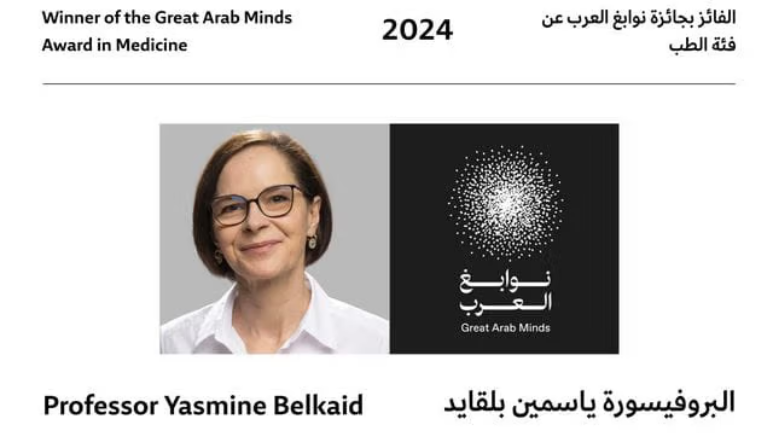
Sheikh Mohammed bin Rashid Al Maktoum emphasized that a civilization with medical pioneers such as Ibn Al-Nafis, Al-Zahrawi, and Ibn Sina is well-positioned to advance human health.
- He congratulated Professor Yasmine Belkaid, the 2024 recipient of the Great Arab Minds Award in Medicine, for her outstanding contributions to immunology and infectious diseases.
- As the President of the Institut Pasteur in France, Professor Belkaid has conducted groundbreaking research on how microbes enhance immunity and prevent disease, boasting an impressive record of over 220 scientific publications.
- Sheikh Mohammed highlighted the importance of recognizing the achievements of Arab scientists to inspire future generations.
- Professor Belkaid’s research deepens the understanding of the connection between microbes and the immune system, particularly focusing on how skin-resident microbes boost immune defenses.
Her work also explores chronic diseases related to microbiome imbalances, contributing significantly to the development of effective preventive and therapeutic strategies.
The Great Arab Minds Award Winner in Literature and Arts
Sheikh Mohammed bin Rashid, Prime Minister and Vice President of the UAE, congratulated artist Dia Al-Azzawi for winning the Great Arab Minds Award in the Literature and Arts category.
In a post on “X,” Sheikh Mohammed praised Al-Azzawi, an Iraqi artist deeply inspired by Mesopotamia’s rich heritage, for his significant works showcased in prestigious museums and galleries.
- Al-Azzawi’s art addresses important humanitarian issues in the Arab world through a unique blend of calligraphy, poetry, and modern artistic expression.
- For over fifty years, Al-Azzawi has been a leading figure in contemporary Arab art, connecting modern art with Arab history and pressing social issues through visual art, Arabic calligraphy, and sculpture.
- The award recognizes outstanding achievements across six fields: Natural Sciences, Economics, Medicine, Literature and Arts, Engineering and Technology, and Architecture and Design.
Great Arab Minds Award Winner in Natural Sciences
Sheikh Mohammed bin Rashid Al Maktoum, Vice President and Prime Minister of the UAE, congratulated Professor Omar Yaghi from the University of California, Berkeley, for receiving the Great Arab Minds Award in Natural Sciences.
In a post on “X,” Sheikh Mohammed emphasized Professor Yaghi’s significant contributions to reticular chemistry, highlighting the importance of his innovations in tackling global challenges related to energy, water, and the environment.
- He recognized Yaghi’s impressive achievements, which include over 300 published research papers and more than 250,000 citations, as a testament to the region’s ability to contribute meaningfully to human knowledge.
- Professor Yaghi’s pioneering research focuses on reticular chemistry, connecting molecular building blocks into frameworks, leading to innovative materials like Metal-Organic Frameworks (MOFs) and Covalent Organic Frameworks (COFs).
These advancements have the potential to address critical global issues such as carbon capture, clean energy production, water harvesting, and catalysis, promising sustainable solutions for a better future.
Read more: Geological Evolution of the UAE
Mohammed bin Rashid and the Arab Hope Makers Initiative
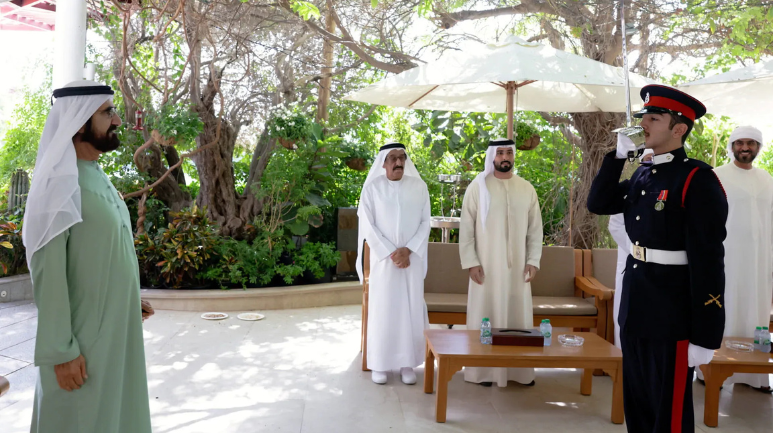
Sheikh Mohammed bin Rashid, Vice President and UAE Prime Minister, emphasized the significance of spreading hope and honoring individuals dedicated to kindness and optimism. He announced the launch of the fifth edition of the Arab Hope Makers initiative, which celebrates philanthropists and their charitable efforts to enhance communities and create positive impacts.
- Hope’s Importance: Hope is essential for humanity; genuine optimism transforms challenges.
- Nominations: Individuals can nominate themselves or others as “Hope Makers” via arabhopemakers.com, focusing on those fostering hope and kindness in their communities.
- Combat Despair: The initiative showcases projects that alleviate suffering in communities.
- Hope Makers Initiative Nominations: Awarded Hope Makers will receive AED 1 million to support their humanitarian contributions.
- Nomination Guidelines: Nominate impactful projects that promote social growth.
Applications for the fifth edition are now open, with the goal of gathering thousands of stories of hope from across the Arab world, with over 300,000 submissions in its first four editions. Last season, Sheikh Mohammed honored four finalists for their diverse community service and humanitarian projects.
Read more: Environmental Impact on UAE Salt Flats
Mohammed bin Rashid Supports Space Sector Growth
His Highness Sheikh Mohammed bin Rashid praised the significant support from His Highness Sheikh Mohamed bin Zayed Al Nahyan in advancing the UAE’s space sector and developing a skilled national workforce. He emphasized the visionary legacy of the Founding Fathers as instrumental to the UAE’s success across various fields.
- Awards Ceremony: During an awards ceremony at Zaabeel Palace in Dubai, held to celebrate the 53rd Eid Al Etihad, Sheikh Mohammed presented five Emiratis with Space Medals. This recognition was for their exceptional contributions to the UAE’s space initiatives.
- Notable Guests: Notable attendees included Sheikh Hamdan bin Mohammed, Sheikh Maktoum bin Mohammed, Sheikh Ahmed bin Mohammed, Sheikh Ahmed bin Saeed, and Sheikh Mansoor bin Mohammed.
Read more: Sustainable Water Resource Management in UAE
Mohammed bin Rashid Attends the UAE Armed Forces’ Largest Military Parade
On the 10th Anniversary of the National and Reserve Service Law, Sheikh Mohammed bin Rashid Al Maktoum, the Vice President and the UAE Prime Minister, attended a ceremony in Al Sameeh, Abu Dhabi. The event also saw the participation of His Highness Sheikh Mansour bin Zayed Al Nahyan, Sheikh Hamdan bin Mohammed, and other prominent leaders from various emirates.
- Ceremony Attended: Sheikh Mohammed and key leaders mark service law anniversary.
- Event Highlights: The ceremony showcased values and the largest military parade ever.
- Parade Participation: Thousands showcased pride in national identity and service.
The ceremony highlighted the values of loyalty, patriotism, and sacrifice, encouraging Emirati citizens to contribute to the nation’s development and security. Coinciding with the anniversary of the National and Reserve Service Law and the 53rd Eid Al Etihad, Sheikh Mohammed witnessed “Waqfat Walaa” (A Stand of Loyalty), which featured the largest military parade in the history of the UAE Armed Forces.
Read more: Conservation of Freshwater Lakes in UAE
Conclusion
Mohammed bin Rashid Al Maktoum, the current ruler of Dubai and Prime Minister of the United Arab Emirates, exemplifies a leadership vision that has transformed the UAE into a global hub of innovation and progress. His commitment to fostering economic growth, cultural exchange, and technological advancement has elevated Dubai’s status on the world stage and inspired countless individuals across the region.
As the UAE Vice President, Sheikh Mohammed bin Rashid Al Maktoum maintains direct contact with the people, ensuring their voices and needs are heard. His legacy is one of resilience and ambition, paving the way for future generations to continue building upon the remarkable foundation he has established. In reflecting on his biography and achievements, we see a leader whose influence will undoubtedly resonate for years to come.
